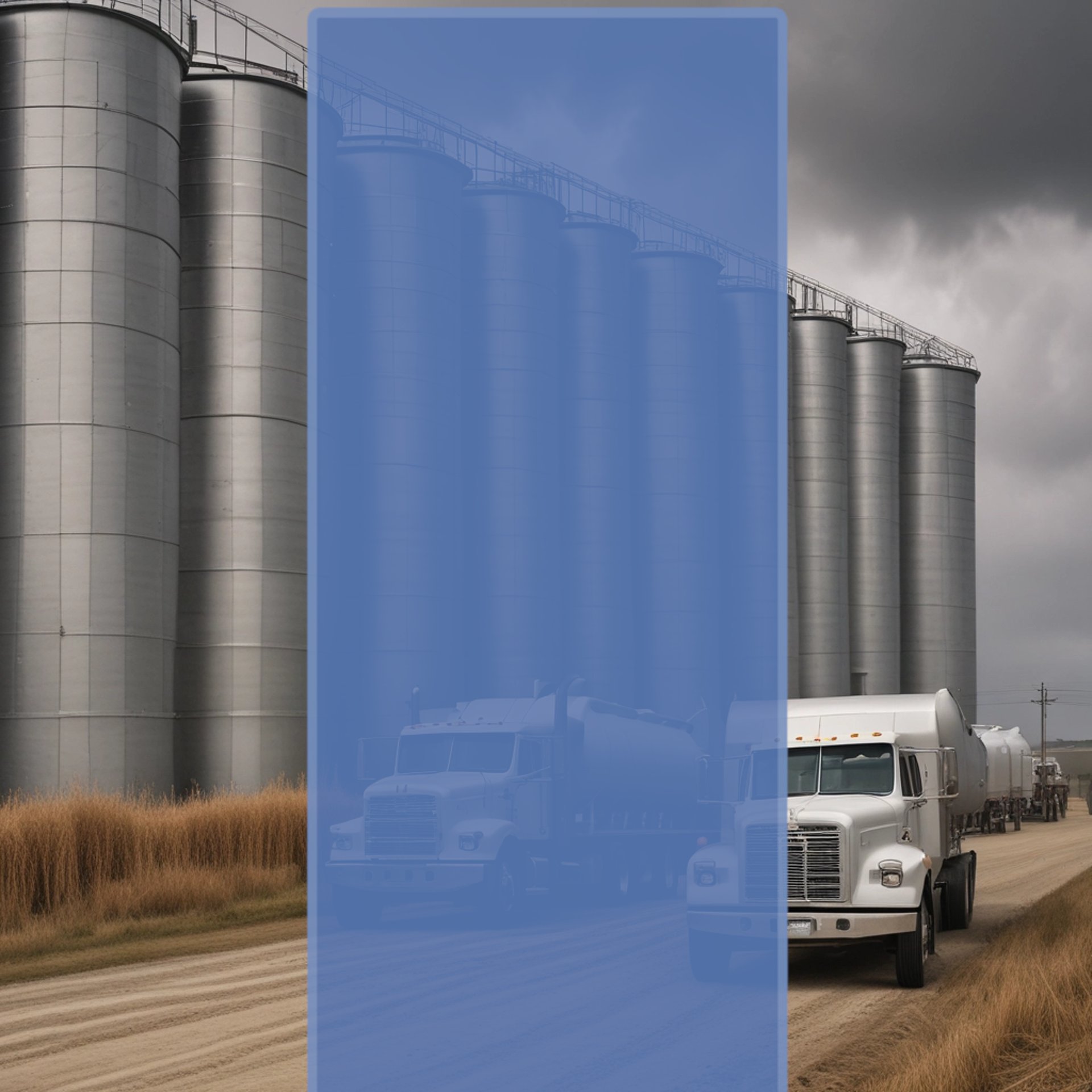From Sahel to the Soy Fields: Port Disaster Leaves Heartland Harvests Stranded
Farmers across the Midwest are facing spoiled crops and lost contracts after the Port Sahel collapse disrupted global trade routes.
HEARTLAND SIGNALWORMHOLE TRANSIT
Clara Jensen | The Heartland Signal
10/20/20892 min read

DES MOINES, IOWA — The collapse at Port Sahel may have unfolded oceans away, but the reverberations are being felt in silos, elevators, and wormhole terminals across the American Heartland. Farmers who struck lucrative export deals through the small West African port now face mounting losses as their crops sit idle, with no clear path to market.
“We had corn contracted through Sahel because the buyers offered a better rate than the bigger terminals,” said Bill Harkness, a third-generation farmer outside Ames. “Now those bins are full, the grain is going stale, and the checks aren’t coming. It’s not just product lost, it’s trust broken.”
Others in the region say the disaster highlights long-standing concerns about relying on smaller, cheaper wormhole routes.
“I feel for the families that lost loved ones,” said Maria Rodriguez, who farms soybeans near Wichita. “But folks warned against tying our livelihoods to a port with limited redundancy. Some chased higher margins and now the whole community pays the price.”
Analysts note that while major wormhole hubs are already rerouting shipments, exporters who sought to maximize profit by funneling goods through Sahel are seeing the steepest losses. Local co-ops report strained storage capacity, and processing plants are warning of reduced hours as contracted exports vanish.
The slowdown has left more than just crops in limbo. In towns where agriculture provides the backbone of the local economy, part-time and seasonal workers are already feeling the pinch. At one grain elevator outside Lincoln, a dozen temporary employees were told not to return this week. Truck drivers who normally ferry grain to local wormhole ports report weeks without contracts. The consequences extend beyond the farm gate, with ripple effects spreading to diners, gas stations, and small businesses that rely on harvest-season traffic.
The crisis has also spilled into political debate. Several Midwestern lawmakers have proposed emergency relief measures to help farmers cover the costs of rerouting their grain through larger, more expensive wormhole hubs. Supporters argue that without quick subsidies, small operations could collapse before the season is over. Critics counter that such packages amount to bailouts for producers who gambled on risky export routes. “We can’t keep writing blank checks every time global trade stumbles,” one lawmaker argued during a committee hearing, warning that long-term reforms, not short-term cash, are the only way forward.
Caught between immediate need and ideological divides, farmers find themselves once again at the mercy of distant decisions. “The truth is, we don’t care what they call it — relief, subsidy, bailout,” said Harkness. “We just need to know if someone’s going to help us move this crop before it rots.”
Beyond dollars and politics, the disruption has cast a shadow over a season that is normally one of pride and celebration. Harvest in the Heartland is a cultural touchstone, tied to festivals, school breaks, and the gatherings that lead into the holidays. This year, many families say the usual sense of accomplishment has been replaced by bitterness and uncertainty. Will anyone take their grain? Will contracts be honored before the cold sets in? For communities where faith in global trade is already fragile, the collapse at Sahel is more than a headline — it’s a lingering question mark over dinner tables and holiday plans alike.
© 2025. All rights reserved.
Stay Informed, Stay Connected
Get real-time updates on global news developments.
